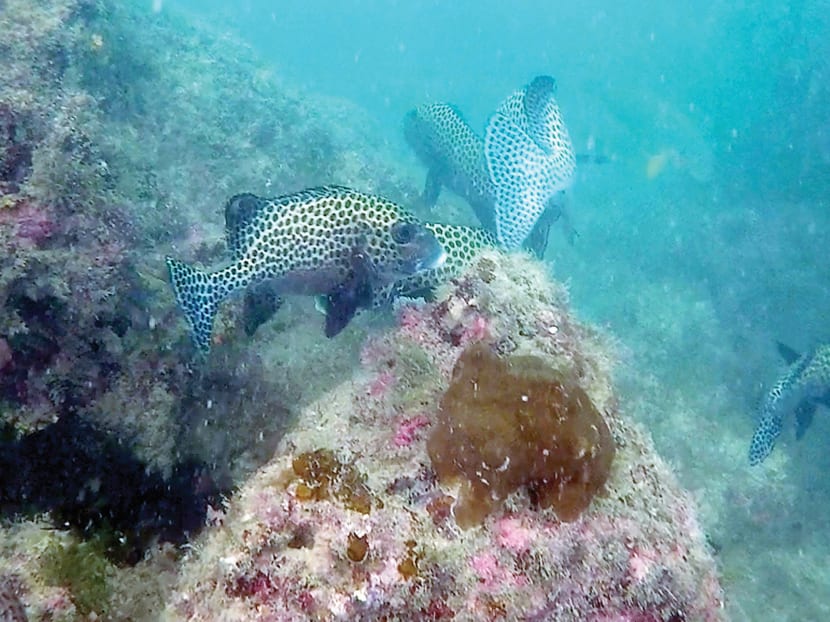Sisters’ Islands Marine Park to see more protections under amended law
SINGAPORE — The Sisters’ Islands Marine Park has been designated as a public park, making it illegal to fish, collect corals, or moor boats there without the approval of the National Parks Board (NParks).

Sisters' Islands Marine Park is home to a variety of marine life such as sea stars, hard and soft corals and clown fishes.
SINGAPORE — The Sisters’ Islands Marine Park has been designated as a public park, making it illegal to fish, collect corals, or moor boats there without the approval of the National Parks Board (NParks).
Laws passed yesterday in Parliament confirmed the status of the 40-hectare area as protected under the Parks and Trees Act. It consists of the sea or seabed around Sisters’ Islands and the reefs off the western coasts of Pulau Tekukor and St John’s Island.
With the changes, NParks will be able to institute new rules specific to marine parks in future, such as restricting diving activities, movement of vessels, or the dropping of anchors at ecologically sensitive areas, so that human activities in the marine park can be regulated.
The site is identified as a rich source of coral larvae, from which the larvae are dispersed to enrich other sites in the southern islands.
Since it would be NParks’ first go at managing a marine park, Senior Minister of State for Home Affairs Desmond Lee said in Parliament that it would be better for the board to “have the flexibility to enact subsidiary legislation governing marine parks”.
This means that the park would be managed in close consultation with the marine conservation and recreational fishing communities, as well as other relevant stakeholders, he said.
Nine Members of Parliament spoke up about the amendments to the Act. Questions on what qualifies as a marine park and how the marine park could be protected were asked.
Nee Soon MP Louis Ng, for instance, sought clarity on whether dead corals, or shells that no longer have shellfish living in them, are protected. Mr Lee said that new rules specific to marine parks would be made in due course.
Nominated MP Daniel Goh expressed concerns that a new clause in the Bill, raised by the Ministry of National Development, allows the Minister to designate any entity to manage a public park, and this could be the start of turning the marine park into an “eco-tourist theme park”.
He asked if the park could be elevated to the status of a nature reserve instead.
In response, Mr Lee said: “(Turning of the park into Disneyland) is certainly not at all in the plans … We will bring together … all the stakeholders who are passionate about our greenery to come together to help us energise, activate, programme our parks, including the marine park.”
Ang Mo Kio MP Darryl David was more concerned about how the area would be developed.
Mr Lee said that there are intentions to make it “a living classroom” for marine conservation, with plans to build a boardwalk, intertidal pools and a floating pontoon at Big Sister’s Island. Small Sister’s Island will host programmes for schools and organisations.
“Even as we want to confer protection on the marine park, make it a sanctuary, we also have to ... (give people the) opportunity to come up close with marine life so they see how valuable and precious this biodiversity is,” he added.
Other amendments passed yesterday under the Act included granting power to NParks officers to enter private property to check on “dangerous” trees or plants, as well as a provision that makes it illegal to release animals into watercourses just outside of nature reserves, if the person knows or ought to know that these watercourses flow into the reserves.
Mr Lee elaborated that the new “power of entry” clause for NParks officers is “intended for NParks to ensure that public safety is not compromised by potentially dangerous greenery (usually trees) that may fall” due to structural weakness or poor health. WONG PEI TING











